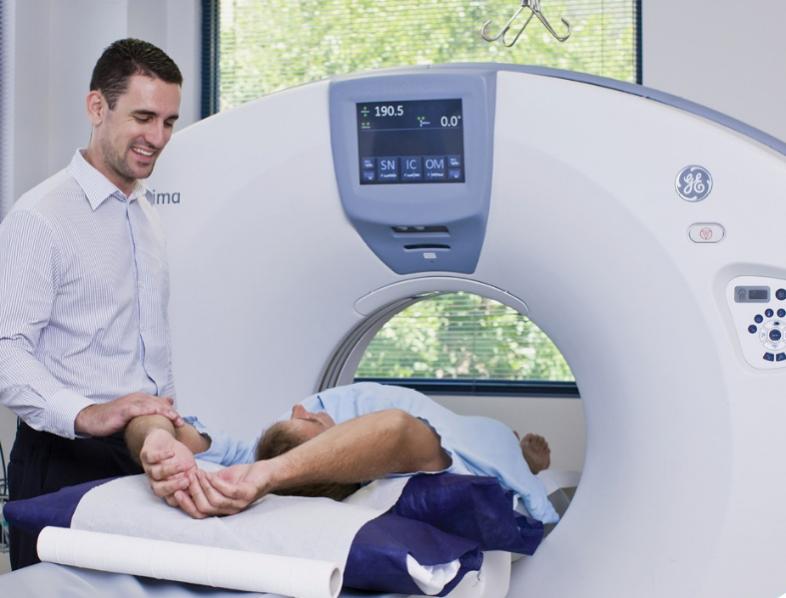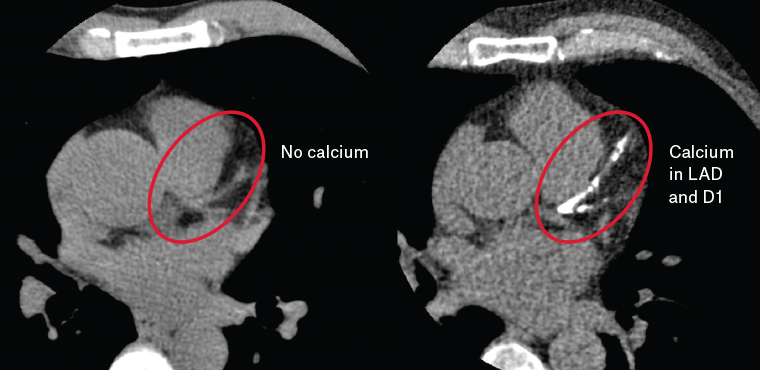What Is a Coronary Calcium Scan?
Nov 01, 2023 By Marie White
The examination itself is brief and does not involve any bodily intrusion. A CT scan, also known as a computed tomography scan, is a form of low-dose X-ray that may be used to examine your coronary arteries. These arteries are the blood channels that deliver blood to the heart muscle. A calcified or hardened plaque may be present. The quantity of calcified plaque in an individual's arteries is a strong and independent indication of the individual's risk of having a heart attack or a stroke in the subsequent ten years.
Based on scan findings, you'll obtain a calcium score. A score of zero indicates that there is no detectable plaque. A score of 100 or above represents a critical threshold. It indicates the presence of plaque, and statin medication is often advised as a treatment option. According to Ron Blankstein, the scale does not have an upper limit. Some of his patients have scores that are far higher than 1,000.
Who Should Have a Coronary Calcium Test?
Coronary calcium testing is not intended to take the place of more conventional risk assessment methods, which consider factors such as LDL, blood pressure, and smoking. According to CDC, close to half of all Americans are at risk for at least one of these conditions. The CAC test, on the other hand, may assist you and your healthcare practitioner in determining whether or not your risk of having a heart attack is high enough to warrant considering cholesterol-lowering treatment with medications such as statins.
Statin medications are indicated as a preventative treatment if your anticipated risk of heart attack or stroke in the next ten years is higher than specific thresholds. This recommendation is based on the findings of population research. It is a difficult decision to make if your estimated risk is neither very high nor very low. Why begin taking a statin if your arteries are already in pristine condition?
When it isn't quite obvious whether or not a patient should take a statin, cardiologists tend to prefer a more individualized strategy that considers specific "risk-enhancing" factors such as coronary calcium scores.

LDL, also known as low-density lipoprotein, is considered the "bad" kind of cholesterol since it is a substantial risk factor for heart disease. The ideal low-density lipoprotein, or LDL, for persons at high risk for heart disease, is less than 70, while the target level for everyone else is fewer than 100. If your LDL is 190 or more, it is considered "extremely high." According to the recommendations made by the AHA and ACC in 2018, calcium scoring might be an option for adult patients aged 40 to 75 who do not have diabetes if the following conditions are met:
- If your LDL level is 70 mg/dL or greater, yet the risk of having a heart attack or stroke in the next ten years is "uncertain," then you have an unhealthy cholesterol level.
- If your LDL is between 70 and 189 mg/dL, your risk of developing heart disease over the next ten years is considered "moderate," but it's unclear whether you should begin treatment.
Which Advantages Does It Have?
According to cardiologists, coronary calcium may assist you and your healthcare practitioner in individualizing therapy if you are debating whether or not to take a statin medication. Let's assume you have a score of 0 for calcium. This indicates that your heart disease risk is lower than projected. If you do not smoke, have diabetes, or have a history of heart disease in your family, you may be able to avoid or postpone the need for statin medication.
However, a 2018 retrospective research published in the Journal of the American College of Cardiology indicated no therapeutic advantage to starting therapy with a statin in individuals with a calcium score of zero. More than 13,600 patients were followed for over a decade in this study.
What Are the Risks?
You put yourself at risk of radiation every time you have a CT scan. According to the USPSTF, the dosage is on the lower end of the spectrum. If a patient has to have repeated scans, though, this might cause worry. According to the findings of the task group, the reclassification of certain individuals into a high-risk category may result in "psychological damages."
There is also the risk that the findings may create a false sense of certainty. Even younger persons with a score of zero may nevertheless have a considerable buildup of premature soft or non-calcified plaque, even if they haven't had any calcification yet. Because of this, people should still maintain a healthy diet and have a healthy lifestyle.








